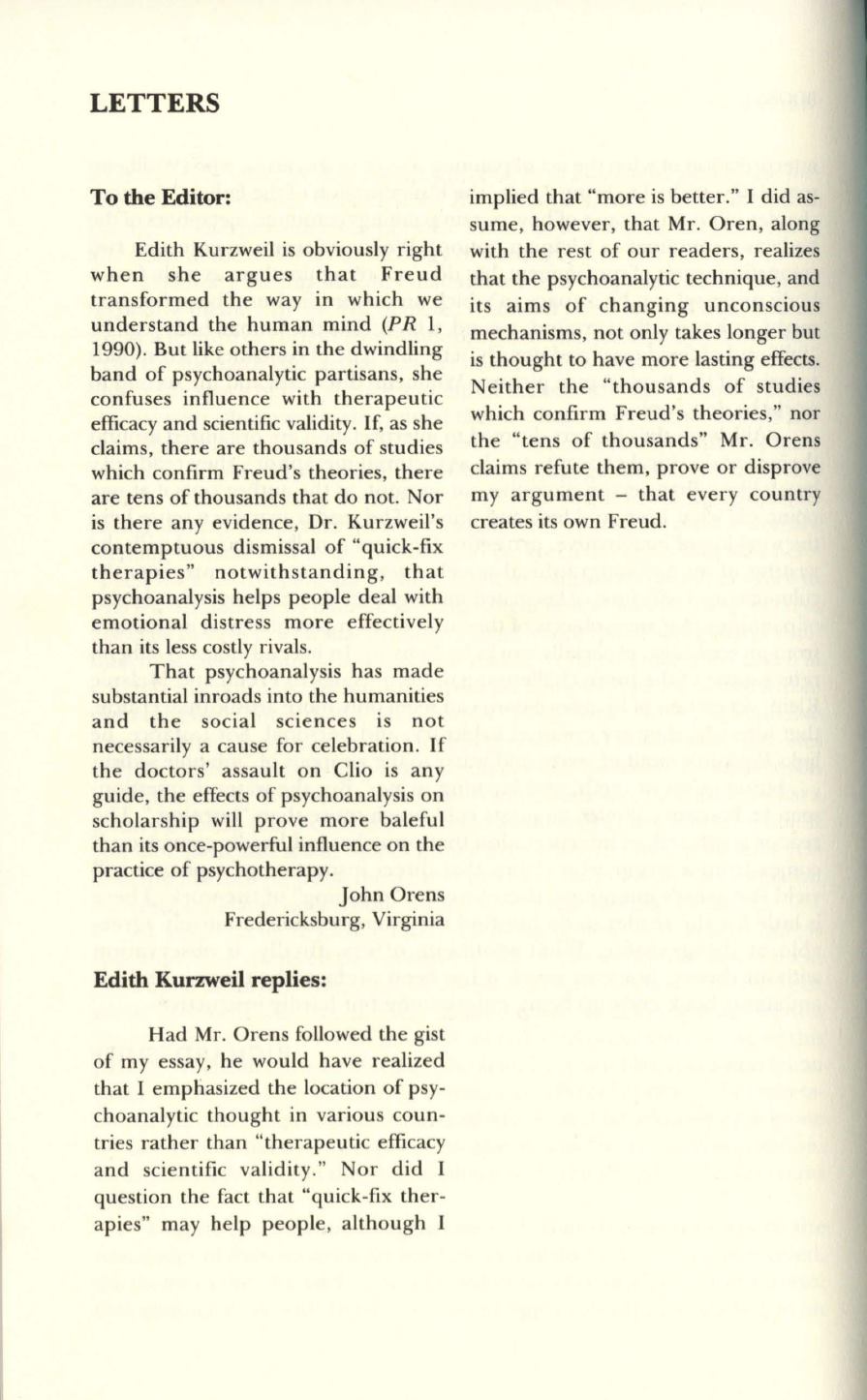
LETTERS
To the Editor:
Edith Kurzweil is obviously right
when she argues that Freud
transformed the way in which we
understand the human mind
(PR 1,
1990). But like others in the dwindling
band of psychoanalytic partisans, she
confuses influence with therapeutic
efficacy and scientific validity.
If,
as she
claims, there are thousands of studies
which confirm Freud's theories, there
are tens of thousands that do not. Nor
is there any evidence, Dr. Kurzweil's
contemptuous dismissal of "quick-fix
therapies" notwithstanding, that
psychoanalysis helps people deal with
emotional distress more effectively
than its less costly rivals.
That psychoanalysis has made
substantial inroads into the humanities
and the social sciences is not
necessarily a cause for celebration. If
the doctors' assault on Clio is any
guide, the effects of psychoanalysis on
scholarship will prove more baleful
than its once-powerful influence on the
practice of psychotherapy.
John Orens
Fredericksburg, Virginia
Edith Kurzweil replies:
Had Mr. Orens followed the gist
of my essay, he would have realized
that I emphasized the location of psy–
choanalytic thought in various coun–
tries rather than "therapeutic efficacy
and scientific validity." Nor did I
question the fact that "quick-fix ther–
apies" may help people, although I
implied that "more is better." I did as–
sume, however, that Mr. Oren, along
with the rest of our readers, realizes
that the psychoanalytic technique, and
its aims of changing unconscious
mechanisms, not only takes longer but
is thought to have more lasting effects.
Neither the "thousands of studies
which confirm Freud's theories," nor
the "tens of thousands" Mr. Orens
claims refute them, prove or disprove
my argument - that every country
creates its own Freud.


